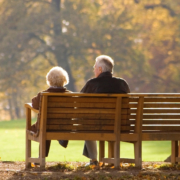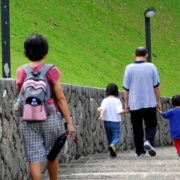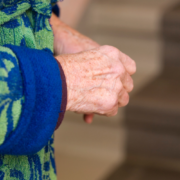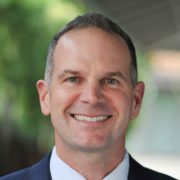Depression in Seniors: What Caregivers Should Know
Feeling down is a normal part of life. We all have days we feel sad. But, if your loved ones’ sadness is continuous, they could be suffering from depression.
Depression is not a normal part of aging. Watch for any signs of depression. If your aging loved one shows symptoms, you can help them get the treatment they need to enjoy life again.
What Causes Depression in Seniors?
About 1% to 5% of older adults are depressed. If your loved one requires home care, they’re at an increased risk for depression. For seniors who need home health care or hospitalization, the number rises to 13.5%.
Several factors can lead to depression in seniors. These include:
Death of loved ones. Losing a spouse, child, dear friend, or beloved pet can lead to depression. Grieving a loss is normal, but becoming depressed is not. It is important to recognize the difference between grief and depression.
Health challenges. A chronic medical condition can cause depression in seniors. For example, experiencing constant physical pain or disability can lead to depression, or worsen previously diagnosed depression.
Medication side effects. Multiple medications can sometimes interact with each other and cause depression. Medication is can be processed differently in the elderly because our bodies become less efficient at metabolizing drugs as we age. Speak with your doctor or pharmacist if you think a medication may be causing depression in your loved one.
Loss of independence and purpose. People find joy and meaning in their work, volunteer activities, and social circles. Your loved one may be deprived of these joys due to a medical condition or a loss of community.
Symptoms of Depression in Seniors
Identifying depression in seniors begins with knowing the common signs and symptoms. These can include:
- Disregarding personal care and hygiene
- Frequent thoughts of death and suicide
- Increased aches and pains
- Loss of appetite and weight loss
- Disinterest in hobbies and socialization
- Feeling hopeless
- Reduced motivation and energy
- Insomnia
- Constant sadness and despair
- Difficulty focusing
Rona Lomeda is a Complex Case Nurse for the seniors in WelbeHealth’s PACE services. During her 30 years of experience in behavioral health and senior care, she’s become familiar with the red flags of depression in seniors.
“If a senior lives alone and is constantly feeling sad or hopeless, those are some early signs of depression,” she said.
Types of Depression Experienced by Older Adults
Several types of depression may affect seniors. These forms of depression are slightly different, but all are treatable with the help of a medical and mental health professional.
Major Depressive Disorder: Major depressive disorder (MDD) is one of the most common mental disorders in the U.S. Your loved one may experience a depressed mood every day for 14 days or longer. MDD may be a single episode, or it may reoccur.
Persistent Depressive Disorder: Also called dysthymia, this is a long-term depressed mood. It may last for at least two years. The severity of the depression may lessen at times, but your loved one will exhibit a chronically depressed mood.
Seasonal Affective Disorder: During the fall and winter months, there is less daylight, and we don’t get out as much due to the cold. As a result, seniors may experience depression during this season.
Treatment for a Senior with Depression
Getting treatment for a senior with depression can help them get back to enjoying life and prevent the worsening of symptoms. Untreated depression has is linked to chronic heart failure in the elderly, drug and alcohol abuse, and suicide.
“Depression can become worse if it is left untreated,” said Lomeda. “Getting seniors the support they need can make all the difference.”
Speaking with your loved one and their doctor about your concerns can be an initial step to getting treatment. From there, the physician can diagnose the condition and provide appropriate treatment.
Typical treatment for a senior with depression can include speaking with a licensed mental health professional. This can help your loved one work through challenging thoughts and emotions. The professional can also give your loved one tools to manage their depression. In addition, a physician or psychiatrist may prescribe antidepressant medication. These medicines work by balancing hormones in the brain that affect mood.
Resources: https://porch.com/advice/senior-safe-home





























































